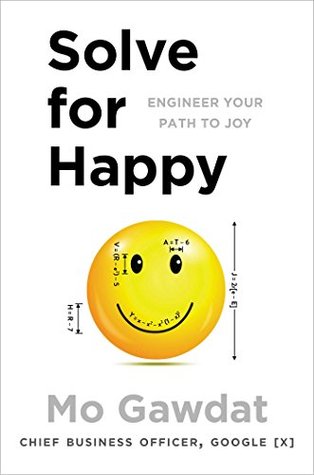More on this book
Community
Kindle Notes & Highlights
The thoughts that lead to fear are always anchored in the future.
The only thing life wants is to be experienced.
Life wants you to sample every flavor it can offer you.
Are you ready to take on that challenge?
If you fear public speaking, find the next opportunity and volunteer to be a speaker. Put yourself beyond the point of no return. Don’t think. Just do it. It will be fine. I promise.
What’s the Worst That Can Happen?
So What? This question is the turning point away from fear and into the direction of courage.
How Likely Is It? Honestly, how likely is it that the worst-case scenario will happen?
Is There Anything I Can Do Now to Prevent This Scenario? That, my friend, is my favorite question of all. This is when you turn your fear into action.
What Is the Best-Case Scenario?
More important, would you be happy? Things often do work out. Why should you let yourself miss out on the upside?
Picturing what awaits you on the other side gives you the energy you need to get up and do it. It gives you the resilience to withstand the pain associated with the process in hope of a better future.
Live every minute of your life totally optimistic about the next moment.
Like a wise teacher, life will test you, fear by fear, to see if you’re ready to move on to the next lesson.
I found joy in the freedom that my willingness to leave gave me.
if I lost my job, life would still find a way.
if it all went away, life would still find a way. I felt liberated.
Test after test, my fears faded away, until, for a while, I felt that I lived fearlessly.
I had a lot to lose but nothing that I feared losing. There was nothing that I cared about, that anyone could take away from me. It felt amazing.
Eckhart Tolle says this is “to die before you die,” to live life knowing that because one day it’ll all be gone, there’s really nothing that you have, and so nothing you have to lose.
I’ll try to live fearlessly. Only then will the journey be complete.
There isn’t a single day in life worth living in fear. Life will bring you face to face with your fears unless you decide to pass the test before it’s brought to you.
Learn to die before you die. It is time to face your fears.
our brains have been equipped with the seven incredible features I’ve just highlighted: filters, assumptions, predictions, memories, labels, emotions, and exaggeration.
research has shown that we tend to think negative—self-critical, pessimistic, and fearful—thoughts more often than positive thoughts.
Mihaly Csikszentmihalyi uses the term “psychic entropy” to indicate that worrying is the brain’s default position.1
Raj Raghunathan and colleagues at the Univ...
This highlight has been truncated due to consecutive passage length restrictions.
phenomenon known as the “negativity dominance.”
Deepak Chopra’s blog post “Why Meditate?”,
We also tend to give greater weight to negative thoughts when we make decisions.
We also dedicate more of our brain resources to negative information.
Rick Hanson, senior fellow of the Greater Good Science Center at UC Berkeley says, “The brain is like Velcro for negative experiences but Teflon for positive ones.”8
Most of us tend to be negative most of the time.
Focus on the white of the page, not the black of the ink.
How much of the constant stream of thoughts in my head is true?
When you filter out the truth, your inputs into your Happiness Equation become distorted. You suffer, not because life did not give you what you expected but because you failed to notice what life had actually given you.
An assumption is nothing more than a brain-generated story. It’s not the truth!
Predicting something will happen often lays the path to make it happen.
Your memories are nothing more than a record of what you think happened. They’re often not the truth!
In the absence of context, labels very often cover up the truth.
most of our actions are actually driven by emotions.
We’re not as rational as we think. Our perception of the truth is often distracted by our irrational emotions.
Princeton professor and Nobel Prize winner Daniel Kahneman calls this “the availability heuristic”: if you think of an incident in which a risk is confirmed, you—your brain—will exaggerate its likelihood.
Shawn Achor, a professor of positive psychology at Harvard, says, “What we’re finding is that it’s not necessarily the reality that shapes us but the lens through which your brain views the world that shapes your reality.
predict 10 percent of your long-term happiness. Ninety percent of your long-term happiness is predicted not by the external world but by the way your brain processes the world.”13
her book Loving What Is, Byron Katie uses
Keep asking the question “Is it true?” as many times as you need until you realize how ridiculous the statements our brain offers us really are.
The Truths Most of the time the only thing wrong with our lives is the way we think about them.
Loss, lack, and pain; love, growth, and inspiration—they’re all part of life.
We try to stay in control and make our life predictable, but eventually we get taken over by black swans and butterflies because change is real.


